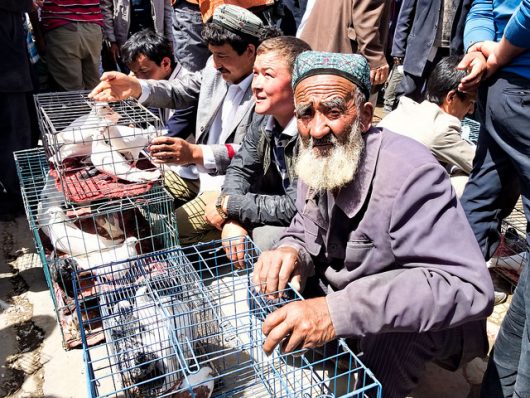Challenges for Human Rights in Kyrgyzstan
 On June 27, the European Union hosted representatives from the Kyrgyz Republic in Brussels for the eighth installment of its annual Human Rights Dialogue, discussing human rights in Kyrgyzstan. Much of the conversation centered around improving existing structures within the Republic, as well as implementing new legislation to benefit certain groups’ rights. The EU representatives stressed the importance of reform of Kyrgyzstan’s judiciary system as well as praised the introduction of new bills to protect the rights of women and children.
On June 27, the European Union hosted representatives from the Kyrgyz Republic in Brussels for the eighth installment of its annual Human Rights Dialogue, discussing human rights in Kyrgyzstan. Much of the conversation centered around improving existing structures within the Republic, as well as implementing new legislation to benefit certain groups’ rights. The EU representatives stressed the importance of reform of Kyrgyzstan’s judiciary system as well as praised the introduction of new bills to protect the rights of women and children.
Earlier in June, U.N. secretary-general António Guterres made remarks about his belief in the importance of increased responsiveness in public service, particularly in regards to supporting and protecting the poor and marginalized.
Guterres promised continued U.N. assistance to Kyrgyzstan and expressed his confidence that it will lead the way in this sector: “I am also sure that Kyrgyzstan will play a very important role in what I hope will be future developments in Central Asia for better cooperation, better integration among the different countries and peoples of [the region] to guarantee its prosperity and its development,” he said.
According to Amnesty International’s 2016/2017 review of human rights in Kyrgyzstan, Kyrgyzstan has some progress to make on the home front before it can turn to leading the region. Torture and ethnic violence are common, and when taken to court the cases are often stretched out over months or years.
Domestic violence against women and children is widespread, with more than 4,960 cases of domestic violence reported to authorities between January and October of 2016. A mere 158 of these reports led to prosecution. Many women, due to social stigma and inability to support themselves independent of their husbands, do not feel confident in going to the police, which suggests that the number of actual domestic violence cases is even higher.
Human Rights Watch reports that amendments to Kyrgyzstan’s constitution are currently pending after a December 2016 referendum, and are supported by nearly 80 percent of voters. These amendments could greatly strengthen the executive branch at the expense of Kyrgyzstan’s parliament and its judiciary, which several organizations believe will lead to increased discrimination and a superseding of domestic over international law.
Amnesty International notes that one of these new amendments establishes a family as being founded on a marriage between a man and a woman, a distinction not made in the current constitution. Members of the LGBT population, as well as other marginalized and stigmatized groups such as sex workers, face widespread abuse and discrimination, the majority of which goes largely unacknowledged and unpunished.
A bill that would have made positive language, or “propaganda,” about “nontraditional sexual relationships” illegal was voted down for the second time. Kyrgyzstan has also recently voted against a U.N. Human Rights Council resolution that would have implemented an independent expert to evaluate the treatment of LGBT people.
Kyrgyzstan joined the U.N. Human Rights Council in early 2016, around the same time as it was awarded the EU’s Generalised Scheme of Preferences (GSP+), which, Human Rights Watch states, “[The GSP+] grants tariff reductions for improved human and labor rights and environmental protections.”
Following the nation’s induction to the Human Rights Council and the GSP+, the EU states that it “expects the Kyrgyz Republic to fully implement the recommendations of the Human Rights Committee.”
The next Human Rights Dialogue between the EU and Kyrgyzstan is scheduled to take place in Bishkek sometime in 2018. In the meantime, Kyrgyzstan has an upcoming election, as well as the results of further constitutional referendums. Both of which could affect the nation’s willingness to work with the EU and the U.N. to strengthen human rights in Kyrgyzstan.
– Erik Halberg
Photo: Flickr
